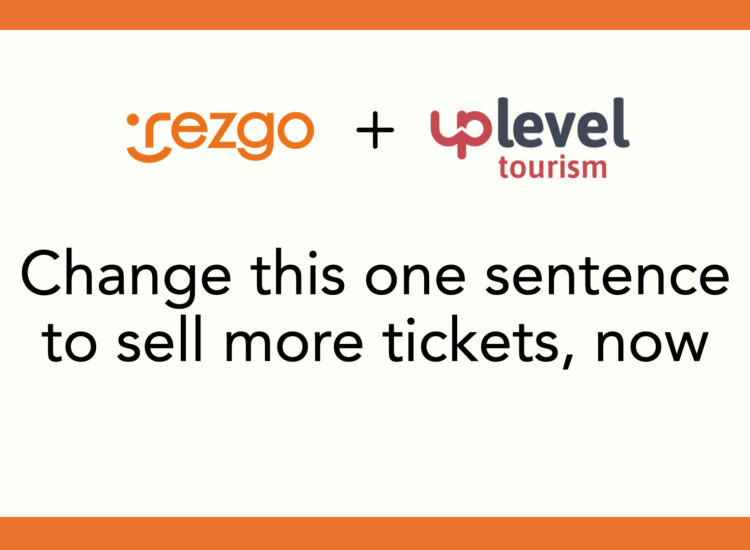By its nature, the way you sell a corporate event is inherently different than how you drive traffic to your public tours, so the sales narrative needs to reflect that.
Here are some useful tips for how to write your corporate tours landing page, as well as some great feedback from our community of tourism professionals.
Key Takeaways from Attendees
Engaging with our tour operator community is the most important part of our Town Hall meetups. We always hope that they can get something valuable and useful to them from our discussions, but the fact is — we get just as much from them! The following are some key takeaways our participants discussed during the Town Hall.
The most important thing about our Town Hall meetups is the chance to engage with our community of tour operators. We always hope that they can get something valuable and useful to them from our discussions, but the fact is — we get just as much from them! Here are some key takeaways our participants voiced during the Town Hall.
- Don Rickard — Platypus Wine Tours: Read reviews for themes, understand what customers respond to. What concept or language are they using that you can incorporate into copywriting.
- Mike Huberty — American Ghost Walks: Don’t use grandiose language. Remember who you’re selling to — public vs. corporate event organizer.
- Karen Anderson — Alberta Food Tours: Writes for the person that hates organizing events.
- Evan Berger — Taste Santa Barbara Food Tours: No rhetorical questions!
- Steve Schneiter — Denver Microbrew Tour: Don’t write with a focus on “we.” Home page might not be the front door. Visitors coming to landing pages first.
Write a Persuasive Corporate Tours Page
1) Your website needs a page specifically for corporate groups.
We want to follow this general rule: “one page, one audience, one goal.” Shanelle Mullin, a top A/B testing influencer and analysis expert at Shopify, refers to this as “the one goal approach.”
Employing a dedicated page on your site to speak directly to corporate group organizers helps you personalize content to the reader and makes it easy to clearly communicate the value you can offer their group.
2) Define One Target Corporate Guest.
We say it every time, but it’s true every time: you need to pick one audience for your page. In this case, you need to define your One Target Corporate Guest. One quick way to zero in on your target is to answer the question, “Who, specifically, will most likely be making the purchasing decision for their group?”
Is it 42 year-old Elizabeth in HR?
Is it 52 year-old Mark the CEO?
Is if 23 year-old Brittni, the assistant that’s been tasked with setting something up for the company?
Whoever it is, we want to define that person in very specific terms. We’re not trying to “market” to this person. Instead, we want to hone in on exactly how we can help them. They are a real person. Because of their work, they has real problems they’re looking to you to help them solve.
For instance, perhaps they’re tasked with planning a monthly outing for their sales team. They’ve exhausted all the usual suspects. No one on their team can stand to go back to Top Golf or Escape Rooms. If you’ve properly defined this Target Corporate Guest, then you’ve been able to identify this as a main problem you can solve for them.
Therefore, when you’re writing your corporate tour page, you know to prominently say that your tour is beloved by sales teams as a unique alternative to the usual suspects.
Your corporate tours should not try to be everything for every group. Knowing who exactly you’re talking to will help you sharpen your messaging and convert more people like your Target Corporate Guest.
3) Write what they want to read.
We’ve all gotten stuck in a conversation with someone who only talks about themselves and how great they are. It’s exhausting. You walk away feeling like that person was a little obnoxious and didn’t care much about you. We see companies do this all the time in their messaging.
Companies who start sentences on their sites with “we,” “our,” or their name in 3rd person seem like they’re only interested in themselves, not the customers they’re hoping to attract. The trick here is to address what you write to “you,” your One Target Corporate Guest.
When writing your corporate tour page, defining your One Target Corporate Guest helps you zero in on exactly what your website visitors need to read rather than what you think you want to say about yourself.
Avoid: Putting too many sales arguments into a single sentence.
Instead of, “We are simple to book, can handle any of your dietary restrictions, and will deliver a memorable experience.”
Change it to say, “This memorable experience can be customized to meet your dietary needs.”
More to avoid:
- Talking about how amazing you are.
- Telling people every little thing that’s included.
- Starting sentences with “we”, “our”, or your name in 3rd person.
- Using rhetorical questions.
- Witty language, tag-lines, or trying to make things sound grandiose.
Do: Change sentences to start with “You.”
Instead of writing, “Our private tours are designed with custom pick-up from your hotel or office, and deliver a relaxing and entertaining dining experience;” say something like this instead: “You’ll enjoy a relaxing and entertaining dining experience with our private tours, which will pick you up from your hotel or office.”
More you can do:
- Answer your Target Guest’s question, “What’s in it for me?”
- Use short, direct sentences.
- Write at a 7th-grade reading level.
- Try to use as few words as possible.
- Write for real people, not search engines.


